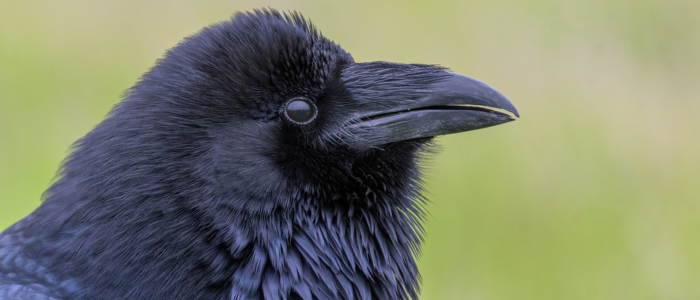The State We're In
Brilliant backyard visitors
By Alison Mitchell, Executive Director, New Jersey Conservation Foundation
New Jersey is home to an abundance of wondrous creatures. Some, like crows and ravens, may seem like an everyday occurrence in our lives, but it’s worth taking a moment to appreciate just how incredible they are.
This state we’re in has two species of crows – the American crow and the fish crow – and the common raven. While they are similar in appearance and hail from the Corvid family (which also includes rooks, magpies, and jays) crows and ravens are not the same! Ravens are noticeably larger than crows, and the two species have different tail shapes, feather arrangements, and calls. Crows are often seen in groups, while ravens tend to be solitary. And their distinctive behaviors are fascinating.
Crows are highly intelligent birds that make tools and partake in elaborate rituals, which appears to include exchanging gifts! A recent social media trend has shown people building relationships with crows and receiving “gifts” from them. After establishing months-long friendships through feeding, some crows begin to leave all sorts of small items for the people who provide them with food. The offerings range from pennies, jewelry, and keys to rocks, acorns, bottle caps, and other little doodads. Crows even exchange objects amongst themselves!
While scientists can’t yet pinpoint the exact reason why crows “give gifts,” they have proven that crows can recognize individual human faces and quickly learn new behaviors. They even partake in mysterious gatherings around their dead, often referred to as “crow funerals.” Dr. Kaeli Swift has spent years of her career researching this phenomenon and is one of the world’s leading experts on corvid behavior.
While mysteries abound, Swift’s studies have led to the conclusion – at least in part – that crows gather around their fellow dead to learn about dangerous places and new predators. “For crows, attention to their dead might be a really important way that they learn about danger,” said Swift in her 2020 TED Talk entitled “What Crows Can Teach Us About Death”.
Then there’s the gift of gab. Corvids are vocal animals often described as knowing how to “talk.” Both crows and ravens are known for their vocal mimicry – the copying of sounds produced by another species or the environment. Mimicry is a cornerstone of communication and signaling in certain birds. More than 30 different raven vocalizations have been recorded.
Swift explains that common ravens have social, cognitive and physical skills that scientists believe rival those of primates. They solve problems, make complex decisions, and learn new things. Ravens are generally monogamous and mate for life, performing aerial displays like tumbling tricks, acrobatics, and even flying upside down to impress a prospective mate.
Common ravens only began breeding in New Jersey again in the early 1990s, having vanished for nearly a century after most of our forests were cut for agriculture or timber. Their rebound is thanks in part to the regrowth of forests, the bird’s adaptability, and even the proliferation of cell phone towers. It turns out ravens love using them as nesting sites.
Crows and ravens have been entwined with human history for millennia, from Edgar Allen Poe to Norse and Irish mythology – owing in large part to their obvious intelligence and intriguing behavior.
Why not cultivate this ancient connection by befriending crows in your backyard? Maybe they’ll leave a trinket or two! They enjoy eating unshelled peanuts, eggs, and meat scraps. But when it comes to touching them, the rule is “Nevermore!” to quote Poe’s famous literary raven. Crows and ravens are protected under the migratory bird act of 1972, and it is illegal to kill, harass, or handle them, so please keep your distance.
To learn more about Swift’s research on corvids, you can visit her blog at https://corvidresearch.blog/ or watch her TED Talk at https://www.youtube.com/watch?v=IcaDZK1Njb0.
To learn more about how you can help preserve New Jersey’s natural resources, visit the New Jersey Conservation Foundation at www.njconservation.org or reach out to us at info@njconservation.org.
About the Authors
Alison Mitchell
Executive Director
Michele S. Byers
Executive Director, 1999-2021
John S. Watson, Jr.
Co-Executive Director, 2022-2024
Tom Gilbert
Co-Executive Director, 2022-2023
View their full bios here.
Filter
Get The Latest News
From The Garden State
In the
News

